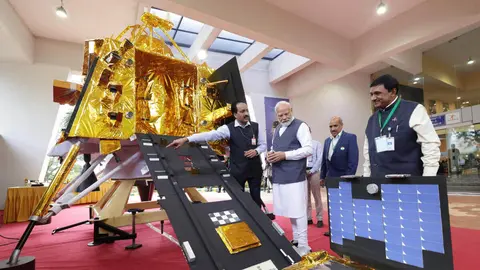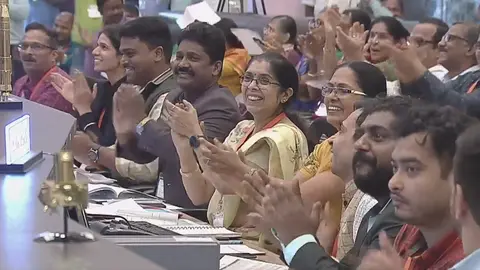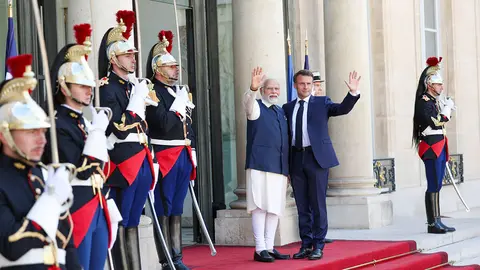India and France reinforce their strategic partnership and industrial cooperation in defence, aerospace and nuclear
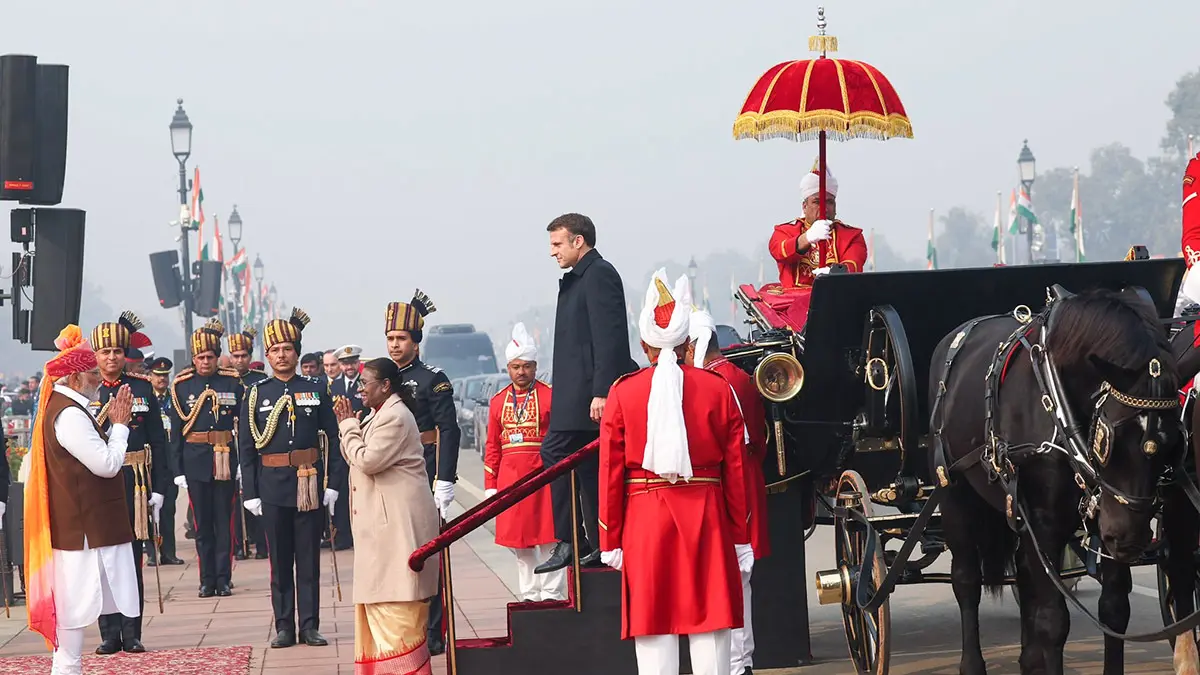
The presidents of the French Republic are the best ambassadors of the French defence and aerospace industry and Emmanuel Macron, like his predecessors, usually returns to the Elysée Palace with his hands full of contracts and commitments every time he pays a state visit to a third country.
- Paris lays the foundations for growth and security in Indo-Pacific
- From nuclear power plants to submarines
This was the case during his official visit to India on 25 and 26 January, where he was the guest of honour at the grandiose and colourful military parade commemorating the 75th anniversary of "Republic Day", a bank holiday instituted on 26 January 1950, two years after independence. Coinciding with Macron's forced departure from France, the main highways linking France and Spain were cut off on French soil due to angry protests by French farmers, who have blocked and looted Spanish trucks in the face of the passivity of the Gendarmerie.
Macron's stay in India is part of his quest to strengthen the so-called "strategic partnership" between the two nations, which was signed on 26 January 1998 by then President Jacques Chirac and Indian Prime Minister Inder Kumar Gujral and has just celebrated its 26th anniversary. Its "cornerstone", as the joint statement issued by the two nations reiterates, is their "close cooperation in the framework of defence and security", talks that in New Delhi have focused on increasing industrial collaboration and joint operational training between their armed forces.
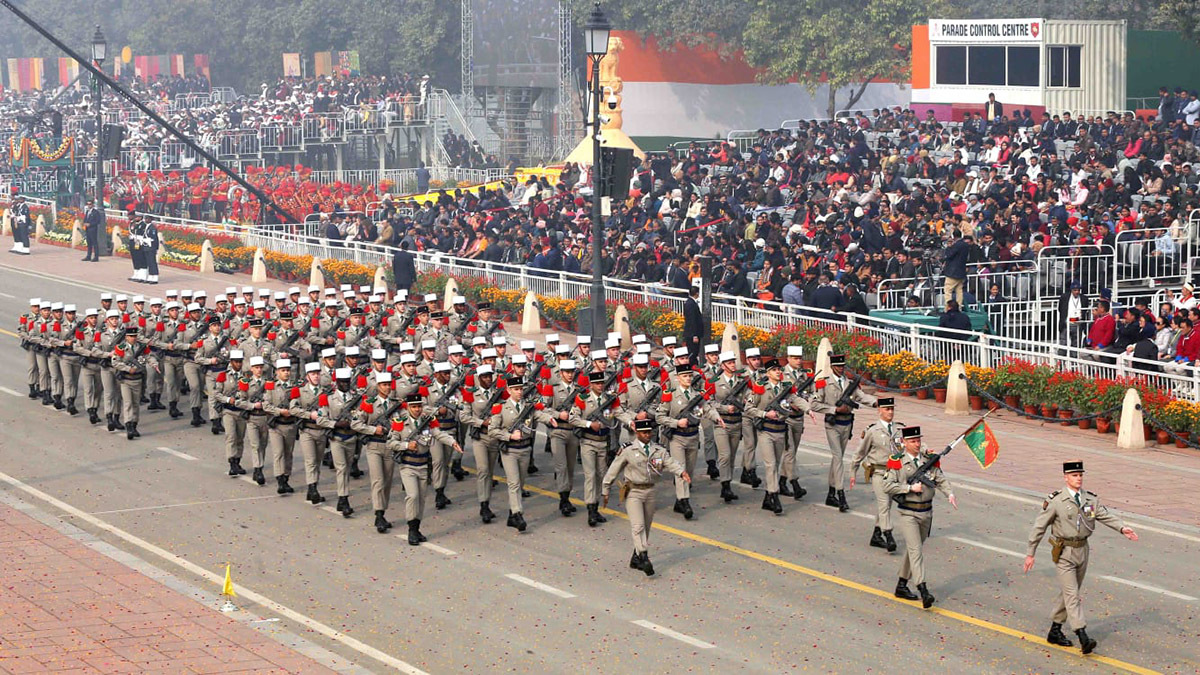
For Delhi, having Paris as a supplier of nuclear technology and one of its main sources of weapons systems is a guarantee against the hegemonic interests of China and Russia. For Paris, keeping India as a guarantor of the security of its overseas possessions in the Indo-Pacific is a priority. France holds sovereignty over French Polynesia, New Caledonia, the so-called Collectivity of Wallis and Futuna, the islands of Mayotte and Réunion and the Passion or Clipperton atoll. It is home to around 1.5 million French nationals, some 8,000 of its military personnel and more than 90% of its Exclusive Economic Zone.
With the Indo-Pacific being the new epicentre of the world's commercial, diplomatic and military relations, Macron has added foreign, culture and defence ministers Stéphane Séjourné, Rachida Dati and Sébastien Lecornu, respectively, to his entourage, accompanied by a select group of top government officials and senior executives from his main industries. For example, the head of the Directorate General of Armaments (DGA), Emmanuel Chiva, and the president of the French space agency (CNES), Philippe Baptiste.
Paris lays the foundations for growth and security in Indo-Pacific
With more than 500 French subsidiaries established in India, the official delegation included top-level business representation: Guillaume Faury, CEO of Airbus Industrial Corporation; Bruno Even, CEO of Airbus Helicopters; and Olivier Andriès and Gaël Méheust, CEOs of engine manufacturers Safran and CFM International respectively.
The Airbus executives were present to announce the installation of a helicopter assembly line in India in partnership with Tata, the large national industrial and technological group. The rotary-wing aircraft to be assembled at the new facility is known to be Airbus' best-selling helicopter, initially called the Ecureuil (squirrel), then the Eurocopter AS350 and now the H125.
The initiative is part of the Indian government's "Self-Sufficient India" programme, AatmaNirbhar Bharat in Hindi. The H125 factory will be the second assembly line that Airbus has set up in India together with Tata. The first is the Vadodara plant in the state of Gujarat for the manufacture and assembly of 40 Spanish-designed C295 military transport aircraft for the Indian Air Force. It is a contract for 56 units that dates from September 2021, of which the first 16 will be produced at the Airbus factory in Seville and the rest in the Indian subcontinent.
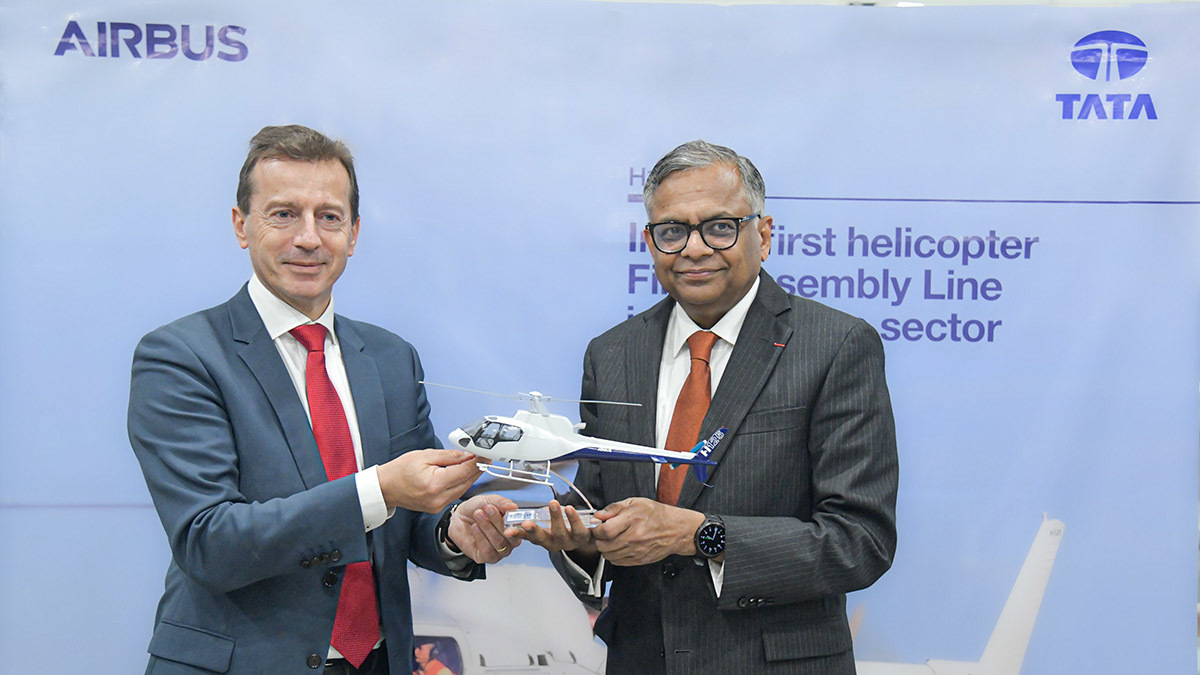
Also to take advantage of the French President's presence in New Delhi, the French-American engine manufacturer CFM International - one of the world's largest, owned 50/50 by France's Safran and the American GE Aerospace - has signed a contract to sell more than 300 large LEAP-1B aircraft engines to the Indian airline Akasa Air, which has purchased 150 Boeing 737 MAX 8s.
India is considered the fastest growing aviation market in the world. Its airlines have a fleet of passenger aircraft numbering around 700. Airbus and Boeing have contracts to supply hundreds of aircraft to the airlines Air India, IndiGo and Akasa, and forward studies suggest that the fleet will grow to more than 2,000 aircraft by 2030.
Narendra Modi's nationalisation policy has led to Airbus, Boeing and the major aircraft engine manufacturers certifying numerous Indian companies as their suppliers, and they are already providing equipment, components, logistics and maintenance services for the commercial and military aircraft and helicopters of both corporations in India.
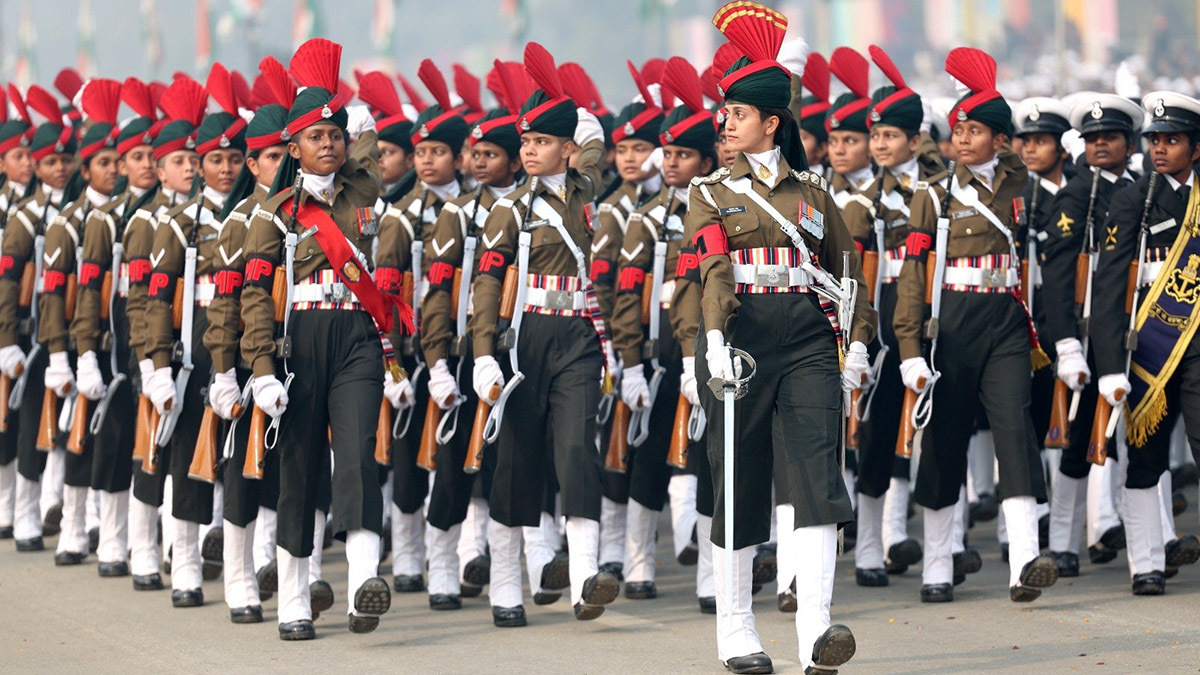
From nuclear power plants to submarines
For example, Safran has already agreed with Indian aeronautics company HAL to set up a LEAP and Snecma M-88-4e engine sustainment workshop for Rafale fighters, both for its 36 air force and the planned 24 naval version for its navy, which are currently under negotiation.
In the case of Airbus, its expectations are to "double" the economic volume of its purchases in India "to 1.5 billion dollars in the next few years", emphasises Rémi Maillard, President of Airbus India. The Delhi government has almost 12 billion dollars worth of projects underway to build new airports and upgrade existing ones.
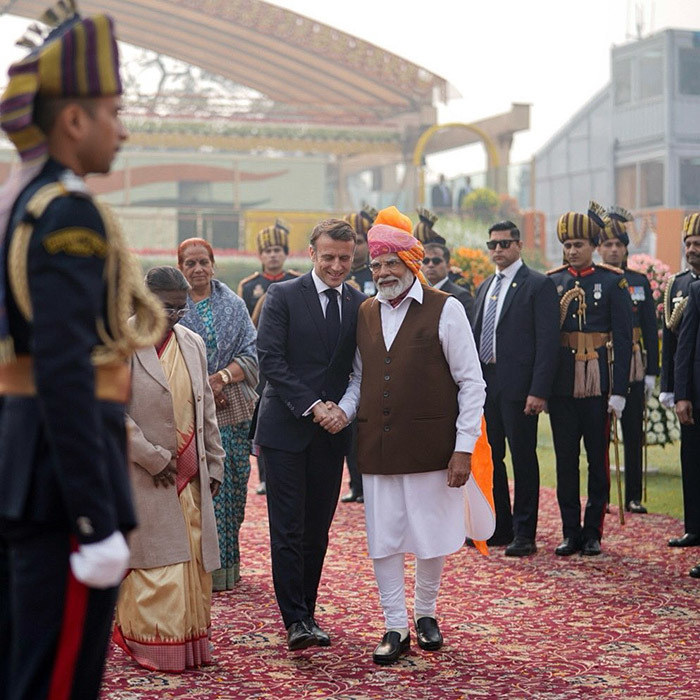
In the institutional framework, high-level talks between the Paris and New Delhi delegations exchanged views on international crises, especially those in the Middle East and Ukraine. But they focused on bilateral cooperation in the defence and security framework, most notably on the quest to increase bilateral industrial collaboration in the military and nuclear fields.
In the latter, both political leaders are committed to advancing the Jaitapur nuclear power plant project, which will have six pressurised reactors (EPRs) to produce 9.6 Gigawatts and cover the consumption of 70 million households. On the military side, the Indian Defence Research and Development Organisation (DRDO) is negotiating a technology transfer agreement with the French DGA and Naval Group for the possible purchase and construction of three conventionally powered Scorpène submarines.

An essential factor in Franco-Indian relations has not been missing: space cooperation. It is well known at the Elysée that India has trained a couple of Indian aviators in Moscow, who have already been accredited as cosmonauts. So it is no coincidence that President Macron's entourage, and thus the talks between CNES and ISRO, included astronaut Thomas Pesquet, who has travelled twice to the International Space Station (ISS), accumulated nearly 400 hours in orbit and has gone out six times to work outside the ISS.
Very importantly, Narendra Modi has managed to convince Macron that France considers the reform of the UN Security Council to be an "urgent necessity". The joint French-Indian communiqué explicitly states that France "supports" India's candidacy to join the Security Council as a "permanent member". With the Indian authorities' warm welcome for the French President, Narendra Modi is returning to Emmanuel Macron the pomp with which he was received as guest of honour at the parade on 14 July 2023 in Paris.


